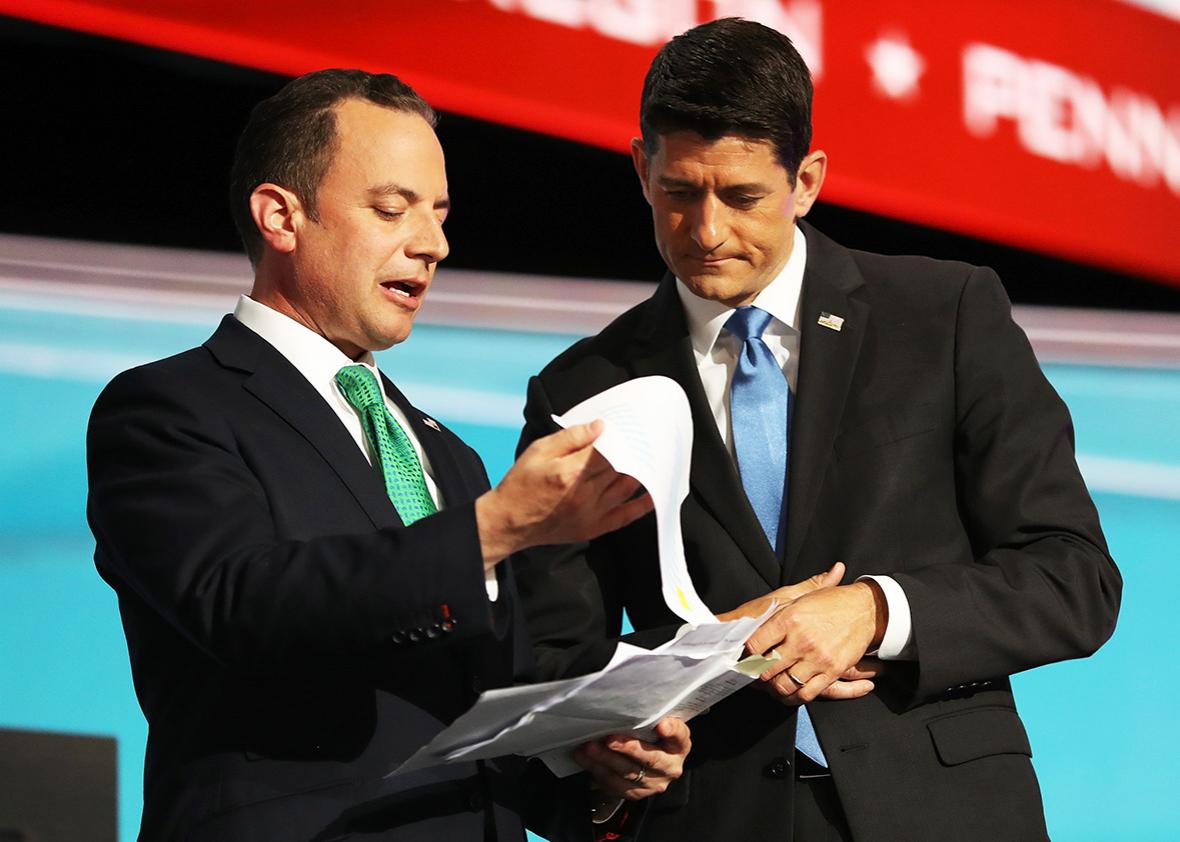In his month as president-elect, Donald Trump has split his time between staffing his administration—selecting and vetting candidates for his cabinet—and using Twitter. And on Twitter, his focus is vindication. When challenged for his phone call to Taiwanese leadership—a breach in American conduct and policy toward China—the president-elect went on Twitter to defend himself and later, criticize China. Likewise, when challenged about the time he spends on social media, Trump lashed out: “If the press would cover me accurately & honorably, I would have far less reason to ‘tweet.’ Sadly, I don’t know if that will ever happen!”
Twitter is still where Trump lets his id out for a walk. His most provocative tweet came when it had become clear he would lose the popular vote by a significant margin. “In addition to winning the Electoral College in a landslide, I won the popular vote if you deduct the millions of people who voted illegally,” said Trump, in response to observers who said he lacked a mandate for sweeping change.
I’ve written before that this is an extraordinary claim: an accusation of mass fraud on part of hundreds of state and local election officials. Which is to say it’s false. An assertion with no grounding in fact or evidence. Worse, it stands as a direct attack on the legitimacy of American elections and casts a pall on our democracy. It’s a disturbing thing for an incoming president to say, and it deserves sanction from his fellow Republicans.
No sanction came. On Sunday, in separate interviews with CBS News, two of those Republicans were given a chance to speak against Trump’s conspiracy-mongering. On Face the Nation, host John Dickerson pressed Republican National Committee chairman Reince Priebus on Trump’s accusation of voter fraud.
“As the incoming chief of staff, what do you do when he says something like millions of voters voted illegally in California, when you know that that’s not true?” Dickerson asked. “Well, I don’t know if that’s not true,” Priebus replied. He continued: “There are estimates all over the map on that. Here’s the problem. No one really knows.” When Dickerson pressed Priebus directly—“But you think millions voted illegally?”—the GOP official said that it was “possible,” even arguing the president-elect has no obligation to vet his theories for evidence or proof.
Where Priebus defended Trump, House Speaker Paul Ryan, in his interview with Scott Pelley on 60 Minutes, dismissed the issue outright. “Trump tweeted in the last week or so that he had actually won the popular vote, if you deduct the millions who voted illegally. Do you believe that? ” Pelley asked. “I don’t know,” Ryan said. “I’m not really focused on these things.”
Like Dickerson, Pelley pressed his interlocutor. And like Priebus before him, Ryan refused to give a straight answer. “I have no knowledge of such things,” said the speaker of the House. “But it doesn’t matter to me. He won the election.” One imagines that if Hillary Clinton had won the election amid questions of voter fraud, Ryan would have had an answer for his interviewer.
These aren’t idle concerns. If the president-elect is right and millions of Americans cast “illegal votes,” then the fundamental integrity of our elections is in question. In that world, we don’t know who won the presidential contest. Perhaps it was Trump; perhaps illegal voting extended to his margins as well. And if the president-elect is wrong—if this is a baseless conspiracy meant to delegitimize the opposition—then Trump is playing the kinds of games that undermine democracies, that pave the way for something dark and ugly.
That two of the most senior Republicans in the party are indifferent to either possibility tells us something important about the party’s role over the next four years. When faced with a rogue or reckless executive, Americans look to our checks and balances to contain the worst abuses. But those institutional checks—the power and prerogative of the courts and of the legislative branch—are dependent on the larger context. They don’t stand absolute, on their own. In the absence of strong norms against racism, for example, there were no checks to keep President Woodrow Wilson from segregating the federal government.
We live in an era of intense polarization among voters and elites. In government, this means a unified Republican Congress that will largely work in concert with a Republican White House. For as much as Congress and the White House have competing institutional interests, they have shared partisan ones. And those partisan interests may outweigh any desire from Congress to act as a check against a Trump administration. We see this, already, in the behavior of Rep. Jason Chaffetz, chairman of the House Oversight Committee, whose zeal for investigation under Obama has somehow vanished with the election of Donald Trump.
Why doesn’t Paul Ryan or Reince Priebus care about Trump’s conspiracy theorizing? Because there’s no partisan incentive to do so. Indeed, there’s an even stronger incentive to ignore what the president-elect says. As speaker of the House, Paul Ryan will have huge influence on the scope and direction of domestic policy. He will have a once-in-a-lifetime opportunity to scale back the welfare state, bringing his libertarian ideology to bear on programs like Medicare and Social Security. With his dream so close at hand, why would Ryan risk his relationship with Trump by challenging his rhetoric? Why would he jeopardize his program?
If it wasn’t clear during the election, it is now: Republican leaders will excuse Trump’s worst behavior as long as he signs their legislation. Which is to say that Paul Ryan and his colleagues will tolerate Trump’s attack on American elections and American democracy, so long as it doesn’t interfere with their program of cutting taxes and slashing the safety net.
